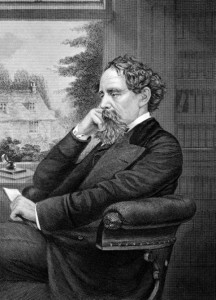Guest Post by Battrick Clark Solicitors

Anyone browsing Amazon for summer reading would be forgiven for thinking that divorce is some sort of recent fad in literature. There’s an ever-blurring line between ‘divorce fiction’ and self-help writing, and many authors are using the novel form as a way of exploring the complex cocktail of emotions that divorce entails. Perhaps it’s no surprise that readers seek out books which are built on this premise – books which offer a direct source of sympathy and solace, and which build up messages of hope through fictional events that feel familiar and immediate.
These books serve an important purpose, but the sheer volume of them might distract us from the simple fact that literature has explored divorce over many decades. Nearly 400 years ago, John Dryden (England’s first Poet Laureate) asked:
‘Why should a foolish marriage vow
Which long ago was made
Oblige us to each other now
When passion is decay’d?’
And writers across the literary canon, from Leo Tolstoy to Henry James, have turned to divorce as one subject within the great landscape of human drama and emotion.
So if you’re tempted to turn to literature as a way to reflect on the experience of divorce, why not consider reaching for a classic? There’s probably nobody better qualified for helping you get a new perspective on things than a literary genius…
Victorian Greats

It’s hard not to fall in love with English classics of the 1800s. Dickens, Austen, Thackery and Eliot have found a place in the hearts and minds of readers throughout the world, combining as they do great profundity, beautiful language, and edge-of-your seat storytelling. This was perhaps the most triumphant chapter in the history of the novel – a form of writing which many people think has been largely based on stories of heterosexual coupling.
But a closer look soon reveals how concerned these writers were with the unravelling of relationships, too. Charles Dickens, famous for his impossibly vast range of subplots and characters, wrote about failing marriages in his early successes, such as Oliver Twist and Nicholas Nickleby, and through to later triumphs also, such as Hard Times. Little Dorrit was published in the same year as England’s ‘Matrimonial Causes Act’, a law which helped make divorce a possibility for more citizens than ever before.